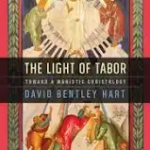This post is by Mary Veeneman, professor of theology at North Park University.
In the speech he gave the night before he was assassinated, Martin Luther King, Jr. said these words:
“Well, I don’t know what will happen now. We’ve got some difficult days
ahead. But it really doesn’t matter with me now, because I’ve been to
the mountaintop. And I don’t mind. Like anybody, I would like to live
a long life. Longevity has its place. But I’m not concerned about that
now. I just want to do God’s will. And He’s allowed me to go up to the
mountain. And I’ve looked over. And I’ve seen the Promised Land. I may
not get there with you. But I want you to know tonight, that we, as a
people, will get to the promised land!”
See this.
















